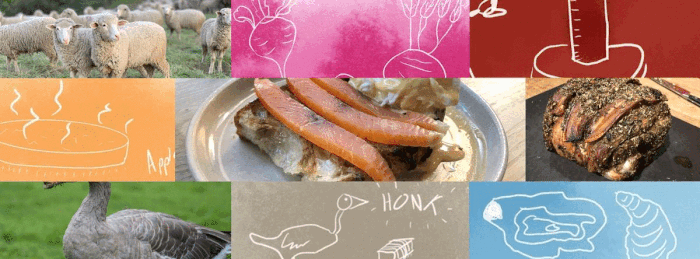
Today is October 31st, 2019, the second time we were meant to leave the E.U. From my tiny Shoreditch flat, I see autumn stirring with majestic ease and am celebrating with Spanish Rioja a few more months being an E.U. citizen.
When it comes to no-deal Brexit, despite the politics, xenophobia and general national shame, there is something else equally important to be concerned about: where am I going to get my bresaola?

That may sound a bit pretentious, but even the most iconic of British foods like fish and chips or chips with chips may be challenging to make in a post-Brexit world. Frozen potatoes from the Netherlands and fish from Norway is just the start of what is a complicated economic story of where our ingredients come from.
So what can I do? I’ve grown accustomed to the spoils of all-year Dutch cherry tomatoes, Irish steak, Spanish lemons, Italian Burrata and French wine. Even yoghurt may be labelled a luxury good without a deal.
I have decided to anticipate the worst, and started thinking about what foods may be available should we lose access to the E.U. market.
What does a no-deal diet look, and more importantly, taste like?
To do this properly, I’m going to need economic data and recipes. My journey takes me from the humble isles of the local Sainsbury’s to the United Nations Food and Agriculture Organisation (FAO) report and finally, the kitchen.
Did you know we exported 50 million dollars of wine to France in 2016? It’s true!
Without further delay, here are seven Post-Brexit safe recipes served with a side of economic insight. Bon appetite.
Note: For additional irony, I have adapted these recipes from every Italian grandmother’s favourite cookbook — The Silver Spoon.
Goose (or chicken) stuffed with potatoes

Most of us will have a memory, perhaps from childhood, probably involving a plastic bag of stale bread, when we were harangued by one of these quarrelsome birds who had seemingly woken up on the wrong side of the pond. This recipe could be substituted for chicken of which the U.K. produces 81% of its supply, but the chance of getting even with those geese is too good to pass up.
It is worth noting Britain imports 99% of its frozen potatoes from the E.U. mostly for things like chips, but we produce 97% of our own fresh supply. Plenty to go round!
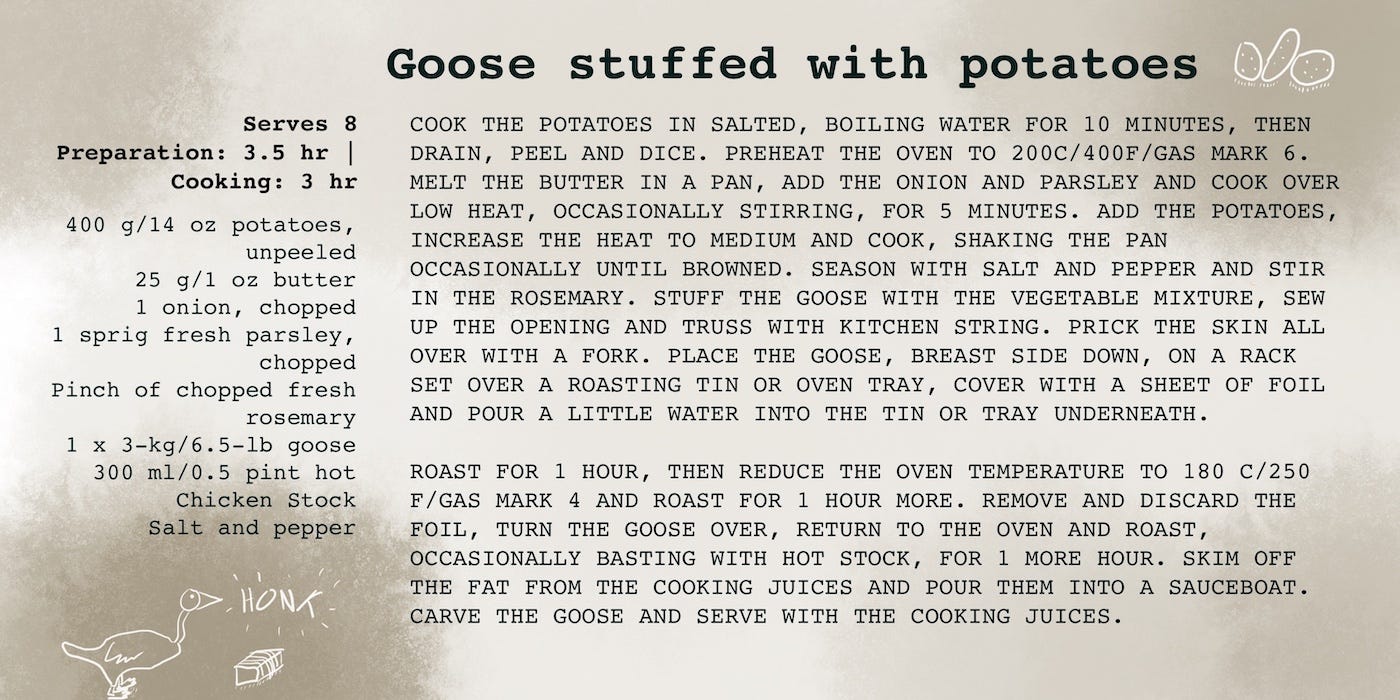
Beetroot with onions
](https://cdn-images-1.medium.com/max/2000/1*1UOzudlVrP2yko0paCtQVw.jpeg)
When you think Britain, how often do you think beetroot? The only time I’ve ever seen a British person eating beetroot is when tentatively sampling borscht. The U.K. beet industry it turns out is one of the most competitive in the world, producing 100 tones per hectare and setting crop yield records in 2018. To be fair, we mostly grow beets for sugar, but surely it’s not too much of a stretch to imagine it being used for all kinds of foods.
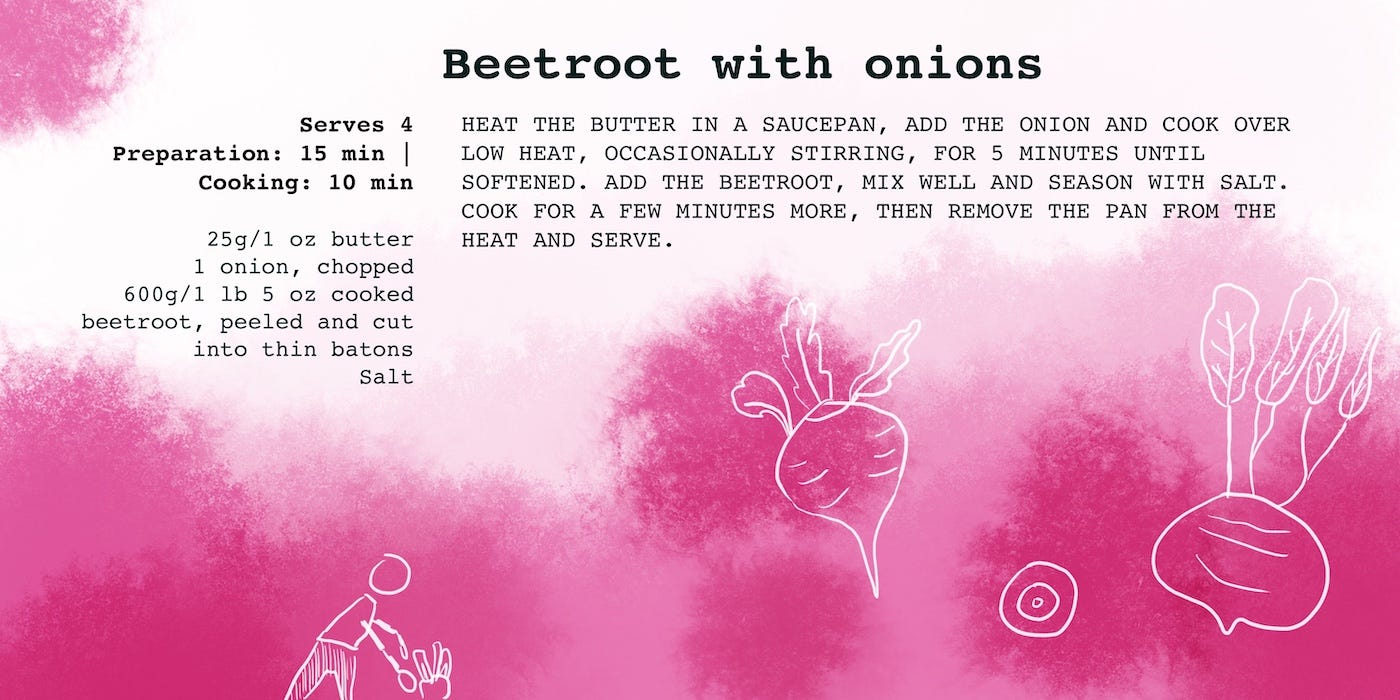
Hard-boiled eggs with oysters
](https://cdn-images-1.medium.com/max/2400/1*Uh8_54pvH8xVrmrrPpQdgQ.jpeg)
Britons eat 13 billion shelled eggs every year, and around 96% of those eggs are produced here in the U.K. — hurray! We do import a-lot of liquid eggs from the Netherlands, but most of those end up in cakes and pastries (we don’t need more reasons to eat unhealthily, thank you).
As an added bonus you may be delighted to hear British is a massive shellfish producer, but most of our stock gets exported. Some oyster farmers are concerned that this will impact their bottom line — $549 million in 2015 to be exact. This recipe is here to help them out and ensure sure you are getting your daily dose of iodine.
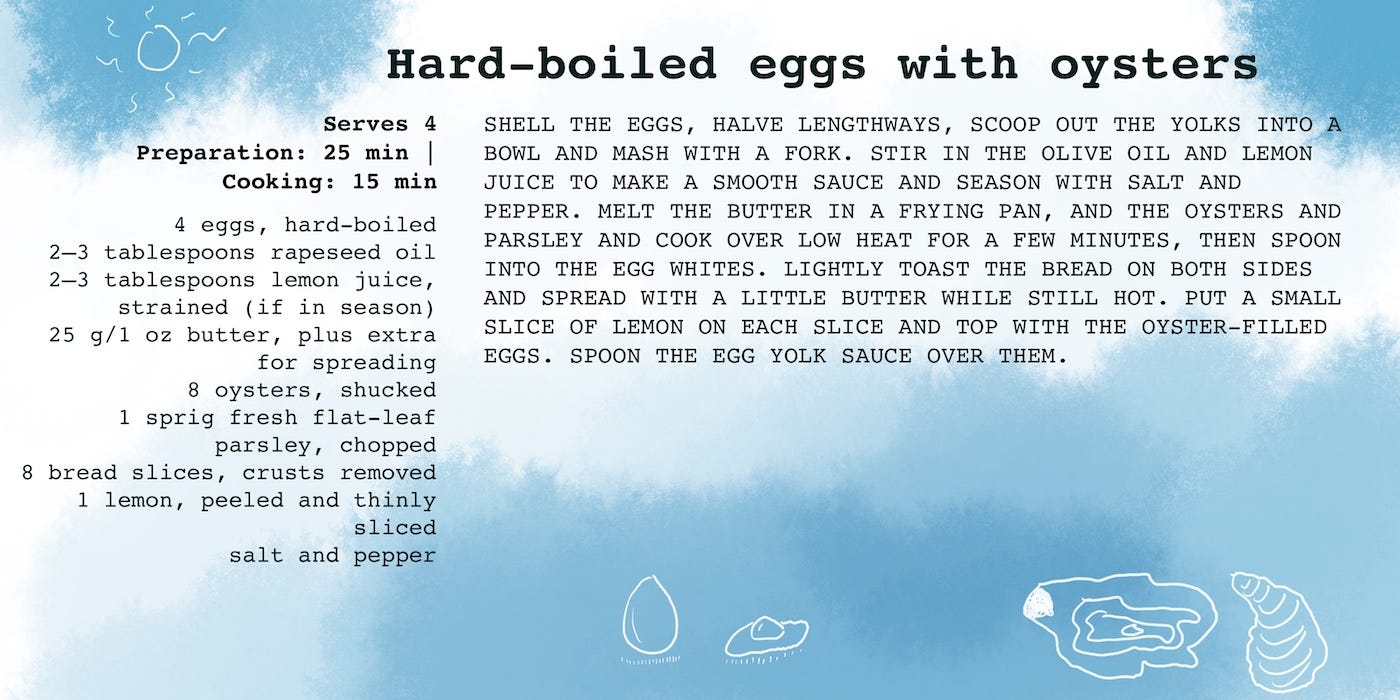
Spicy Lobster
](https://cdn-images-1.medium.com/max/2400/1*EITbLI95eELnP7QC3FlWoQ.jpeg)
Greg Elwell once stated in the *Oklahoma Gazette*: “Lobster is fancy. If you imagine a lobster talking, it probably has a British accent. Draw an animated lobster, and I bet you’ll include a top hat, a monocle, and an opera cape.”
Well, not any more. Thanks to the wonder of excess supply and Brexit trade embargos, this food, once associated with poverty, is about to make a comeback to your proletariat dinner plate.
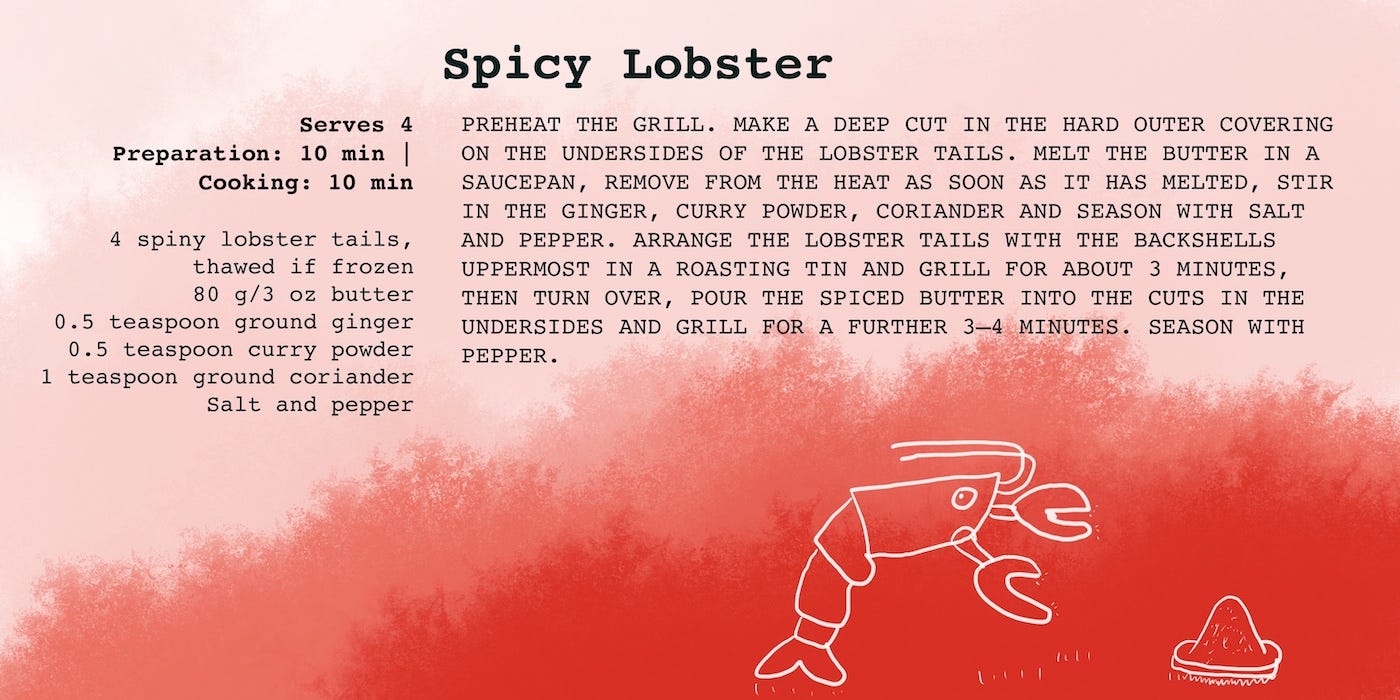
Herb Lamb with Pancetta

Ah, dumb, directionless, defenceless sheep. I recall a story from 2005 where Turkish shepherds watched in horror as hundreds of their flock followed each other over a cliff. Can you picture it? 1,500 sheep, each walking off a cliff, one after the other.
We currently export 98% of our lambs to the E.U. They are in fact so plentiful that in the event of a no-deal Brexit, Boris Johnson is reportedly planning to buy almost the entirety of Wales’s lambs. Quite what the Prime Minister intends to do with £500m of lambs is not clear. “Are we going to give schoolchildren lamb stew, but no fruit and vegetables?” asks an audibly frustrated Tim Lang, a professor of food policy at London’s City University.
Please don’t leave lambs to idle and contemplate a lemming induced fate, cook one instead.
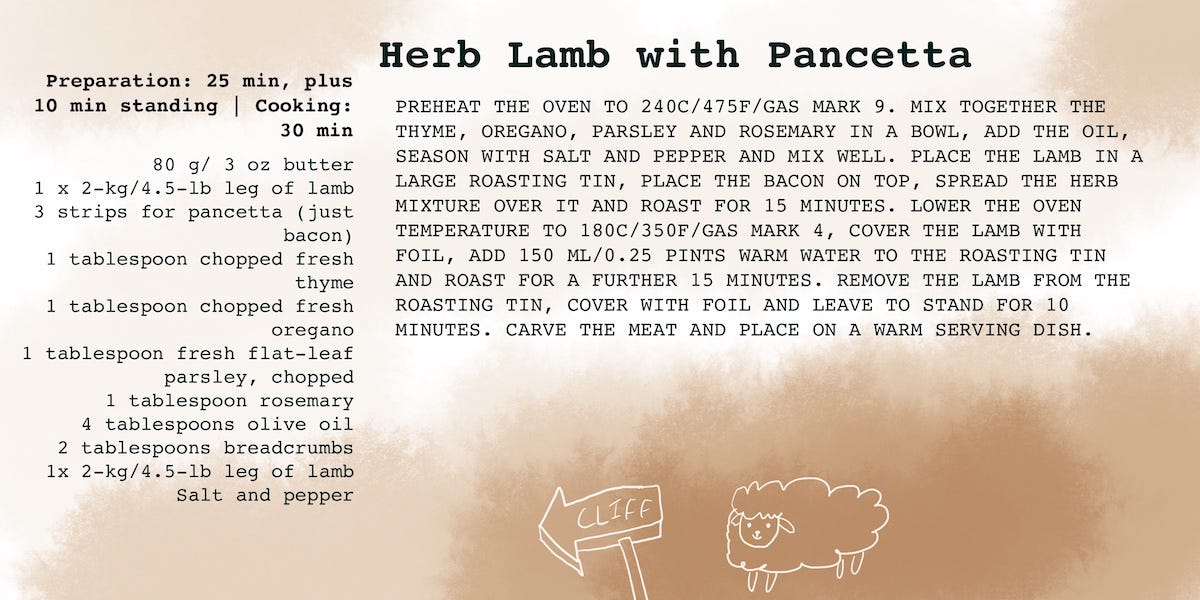
M̶i̶l̶k̶ ̶B̶r̶û̶l̶é̶e̶ Burnt Cream
](https://cdn-images-1.medium.com/max/2400/1*YFjSfEppz25ntyTUAY748g.jpeg)
This dish, despite its continental name, was stolen from the British and improved upon by the thieving French in 1691. Like most things Brexit we are here to reclaim independence of this dessert, bring it home and turn it into the burnt sugar crash inducing dish nobody wanted, but half the population maintain was a good idea.
Thanks to a no-deal, Brits could soon be swimming in milk. U.K. cows produce 80% of all milk produced in Britain, providing plenty for breakfast cereal or dessert trifles. Pair that with some beetroot sugar, eggs and a few hours and soon we will show the E.U. how to make a proper custard.
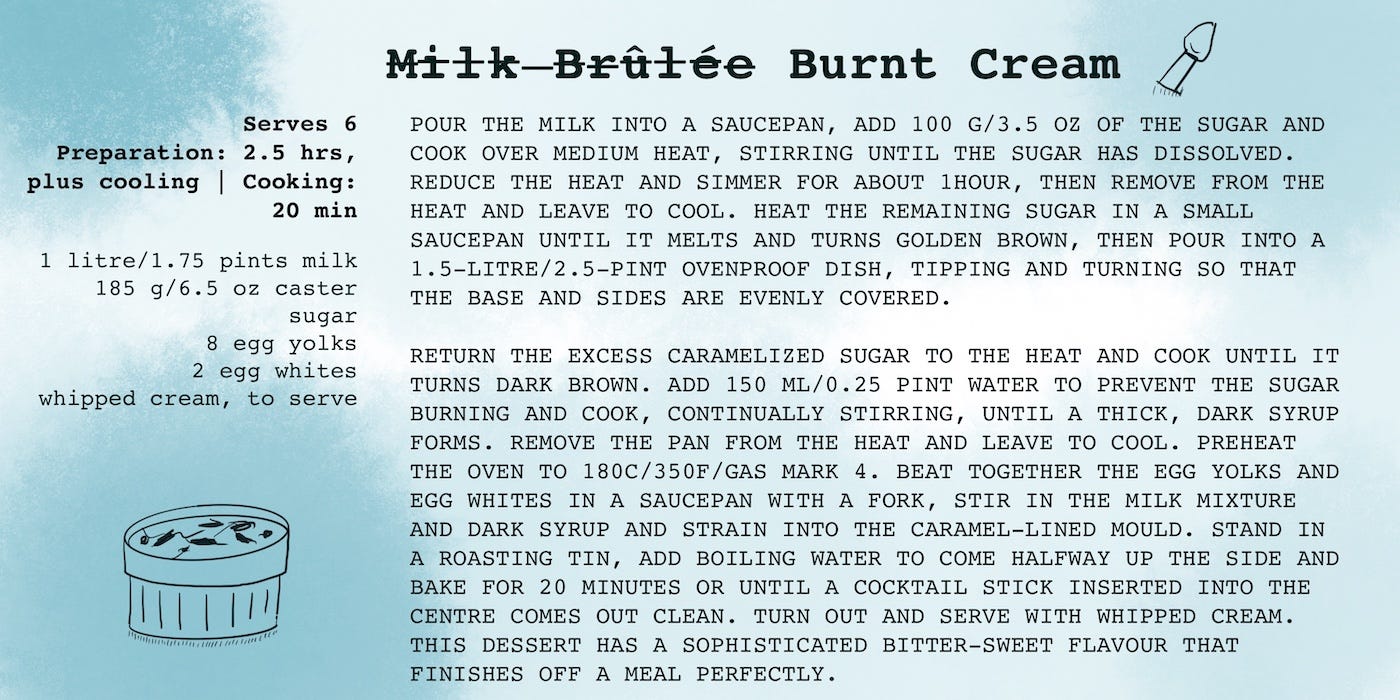
Apple Cake

As more E.U. nationals are leaving amid concerns about freedom of movement millions of apples were recently left to rot in U.K. orchards — how selfish. Thats fine though because they will all be missing out on this delightful cake.
Oh sure they can get apples in Europe, and sure the recipe is Italian. Still, only the British have gone to the trouble of investing in the cultivation of sour, cooking apples: Howgate Wonder, Grenadier, Lord Derby and, of course, the Bramley.
Britain imports more than 476,000 tonnes of apples, but only export 14,800 tonnes (3%) of our own. The good news is that we can substitute all those sweet continental apples with our glorious sour ones. Enjoy!
(P.S. Seriously, make this cake — its amazing and really easy. I made some for my friends, and one person actually said it tasted like their Italian grandmothers — biggest compliment ever).
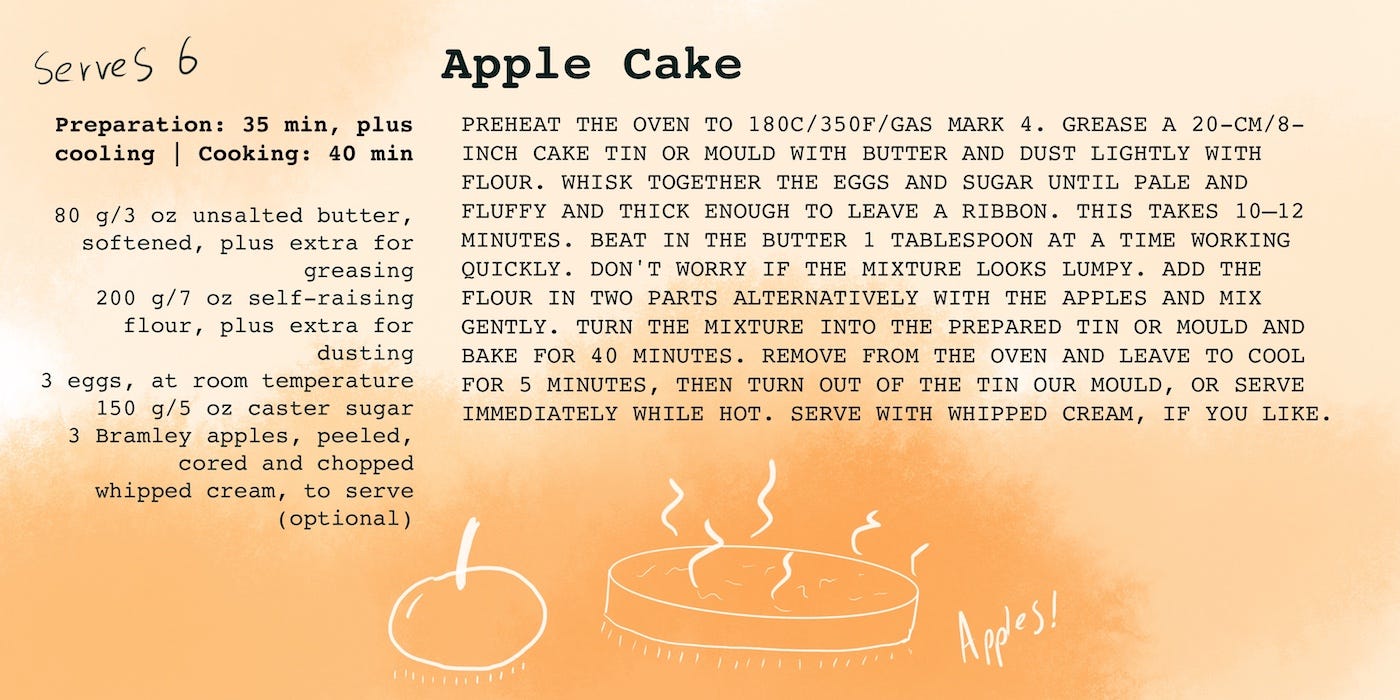
BONUS: Alcohol

Wine is the U.K.’s most valuable food import, totalling more than £2bn a year. In principle, this could be replaced by increased imports from other countries, such as Australia and Chile, but that would mean saying goodbye to champagne, prosecco and cava.
But it’s not all bad news though — we export around £4.5 billion in Whisky annually, much of it going to the E.U. or to countries which have trade deals with the E.U.
About 20 million casks of Whisky are currently maturing in Scotland, and the country could always tap its barley fields to brew beer. Be sure to do your part and treat yourself to a tipple tonight, on the house of course, which is currently on fire, with my dreams slowly burning away. Happy Brexit everyone.